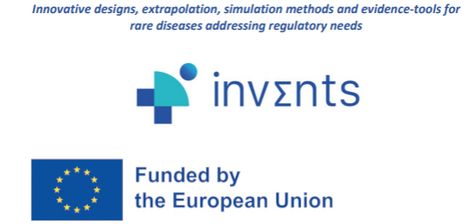INVENTS - Innovative designs, extrapolation, simulation methods and evidence-tools for rare diseases addressing regulatory needs
Department of Medical Statistics
The overall objective of INVENTS is to provide clinical trial stakeholders, trialists and regulators with a generalisable framework encompassing methods, workflows and evidence-tools to improve the level of evidence in regulatory decision making in rare diseases.
This will be achieved through the development and validation of improved extrapolation models, simulation and in silico trials, model based clinical trial design and evidence synthesis methods, all based on robust and mature computational models and qualified on extensive data from representative selected use cases.
Find more information on the INVENTS homepage.

The project is funded under Horizon Europe framework program and brings together 15 partners from 9 countries.
The Department of Medical Statistics is involved with a work package lead to deepen the understanding of how information originating from very different data sources should be synthesised, in particular, when in silico trials generating virtual patients and cohorts are involved. This includes the development of models, as well as criteria to assess such methods and the derived inferences. The work is motivated and illustrated by several drug development applications.
Funded by the European Union under grant agreement 101136365 (INVENTS).
Views and opinions expressed are those of the author(s) only and do not necessarily reflect those of the European Union or the European Health and Digital Executive Agency. Neither the European Union nor the granting authority can be held responsible for them.
This work has received funding from the Swiss State Secretariat for Education, Research and Innovation (SERI).
Involved scientists from the Department of Medical Statistics
Prof. Tim Friede
Head of the Department of Medical Statistics
Contact

Kontaktinformationen
- Telefon: +49 551 3965601
- Telefax: +49 551 3965605
- E-Mail-Adresse: tim.friede(at)med.uni-goettingen.de
- Ort / Raum: Humboldtallee 32, EG, 124